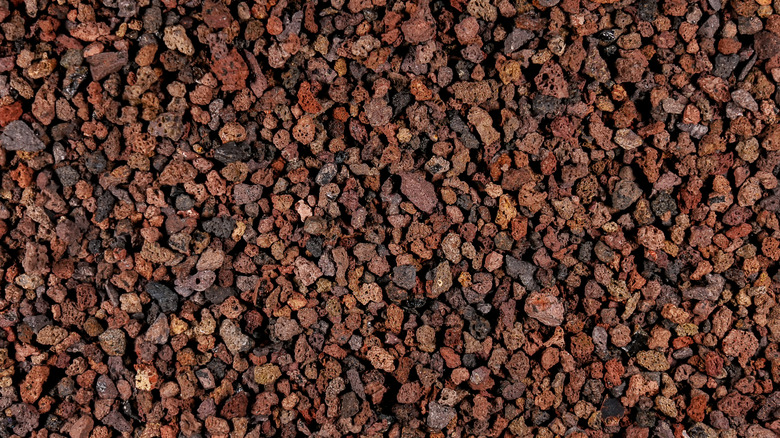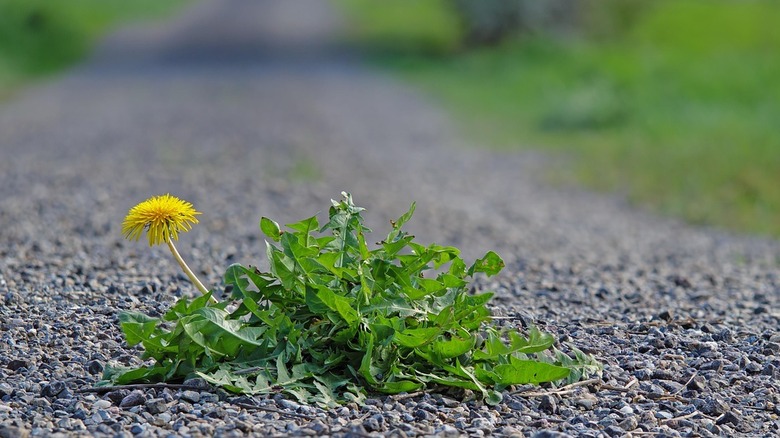The Downside To Consider Before Using Lava Rock Gravel In Your Driveway
Lava rock gravel has become a popular choice for driveway material thanks to its visually striking yet lightweight nature. It's known for its deep red, gray, or black tones, good drainage, and durability, checking almost all the boxes of many homeowners looking for the best types of gravel for their driveway. However, for all its strengths, lava rock might have one frustrating drawback: it doesn't always stop weeds from growing through. Your driveway is the last place you want weeds showing up — they interrupt the clean, clear path leading to your home.
A weed-filled driveway isn't just an eyesore, it's a practical nuisance. Growing up between the rocks, their roots can undermine the surface, making the area uneven over time. Plus, it likely means more upkeep than you bargained for. If your goal is a tidy, low-hassle driveway, there are other types of gravel that might serve you better in this department, especially ones that pack more tightly and offer fewer gaps for weeds to thrive.
Why lava rock gravel isn't the best choice for a weed-free driveway
The main issue with lava rock gravel is that its porous, irregular shape doesn't compact well. That means there are lots of air pockets and space between the rocks — ideal conditions for weeds to sneak through. Some of the best base materials for your gravel driveway have a solid barrier underneath, and without it, you'll likely find yourself pulling weeds or spraying herbicide more often than you'd like. Over time, windblown seeds and soil can settle into those gaps, making it easier for weeds to take root and calling for more regular maintenance.
To prevent weeds from taking over your gravel driveway, your best bet might just be to steer clear of lava rock. If you're set on using it but want to minimize weeding, choosing an alternative like decomposed granite may get you the best of both worlds. This material tends to compact more firmly, leaving fewer openings for weeds to grow. Pea gravel is another option; it still requires a barrier and occasional upkeep, but it compacts better than lava rock and offers a cleaner finish.

